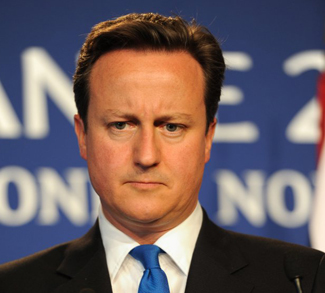David Cameron unveiled the first all-Conservative cabinet in British politics for eighteen years on Monday after his Conservative Party won an unexpected majority in last week’s election. The 2015 election was an earthquake in British politics, and it ended Britain’s experiment with coalition government along with several political careers. The prime minister now leads just the second government to expand its majority in a subsequent election alongside the legendary Margaret Thatcher. But while David Cameron can now govern without the influence of a coalition partner, it will leave him more beholden to his own right-wing – an important consideration given the Conservative’s slender majority in the House of Commons of a dozen seats. The new cabinet reflects this by seeking to represent all factions of the Conservative Party in the new government.
In England and Wales, the Conservatives’ successes came at the expense of their centrist coalition partners the Liberal Democrats and the left-wing opposition Labour Party. But in Scotland the story was of the electoral triumph of the regional nationalist Scottish National Party (SNP) over Labour. Pundits have also claimed that Conservative scaremongering about the prospect of an SNP-Labour coalition was behind the governing party’s surprise victories in England and Wales and this is likely to estrange the Westminster government yet further from voters in Scotland. Ever since the Thatcher years, the Conservatives have been widely disliked north of the border and the arrival of the separatist SNP as the third-largest party in parliament looks certain to aggravate England-Scotland tensions that were meant to have been eased after Scottish voters rejected full independence in a referendum in 2014.
The contentious issue of Europe looks set to return to the headlines following the election, since the current terms of the UK’s membership in the European Union (EU) have been loathed by nationalist Conservatives for decades. The anti-EU United Kingdom Independence Party, which some see as increasingly embodying the voice of English nationalism, won about 13% of the national vote. David Cameron has promised his party a referendum on the question of continued UK membership by 2017. Further complicating the issue is that the newly-empowered SNP is ardently in favour of continued Scottish membership in the EU, and it is just waiting to exploit this latest point of difference between Edinburgh and London as the referendum approaches. An English vote to leave the EU could trigger demands by the SNP for a second referendum on Scottish independence and an application by Edinburgh to rejoin it. In an extreme scenario, the UK could slide towards disintegration with a Scottish state outside both unions until its standing to join the EU as a new member state is recognised.
The United Kingdom’s constitutional arrangements have seemed increasingly dated since the end of the Cold War and have only been slightly tinkered over the past few decades. However as London’s economic dominance has grown, there has been a noticeable drift towards the devolution of political power to the United Kingdom’s composite states and regions. Now, however, the UK is facing a weak Conservative government divided over Europe and with a slender majority. David Cameron has already pledged that he will not seek a third term in 2020, meaning that the race to succeed him as the leader of the Conservative Party, and potentially as prime minister, will gather pace as his second term continues. The stage seems set for the sort of factional infighting that destroyed the Conservatives as a serious political force in the 1990s, opening up opportunities for smaller parties in the lead-up to 2020.
Under normal circumstances analysts would assume such considerations to apply to the opposition Labour Party. After the Conservatives’ surprise victory in the 1992 general election, the resulting administration was judged by voters to have pushed them too far to the right and they responded by turning in droves to Tony Blair’s centrist New Labour. Now, after pushing what many senior Labour Party leaders saw as a populist left-wing manifesto, Labour’s recent crushing defeat has led many party strategists to urge a re-adoption of centrist ‘Blairite’ principles. These had been rejected before the election because Tony Blair is widely unpopular in the UK. But with Labour members anticipating the emergence of Conservative divisions over Europe down the line, many are hoping capitalise on the inter-Conservative race to succeed David Cameron which should be in full swing by 2017 and to repeat Blair’s trick of colonizing the center ground.
However, Labour’s attempts to return to political relevance are threatened by the growth of regional parties in areas that were once Labour strongholds. In Scotland, it has followed the Liberal Democrats and Conservatives into political oblivion. In its other traditional heartlands, the post-industrial regions of northern England, its blue-collar base voted for the insurgent UKIP party in droves.
The number of Liberal Democrat members of Parliament, the third party of British politics, was reduced to single figures. Labour has grown in strength in London, but the big lesson of the 2015 election is the decay of the national British parties outside of the capital. Any Conservatives who are still flush with their surprise election victory may wish to reflect on this unpleasant fact as they form the next government.
The opinions, beliefs, and viewpoints expressed by the authors are theirs alone and don’t reflect any official position of Geopoliticalmonitor.com.




